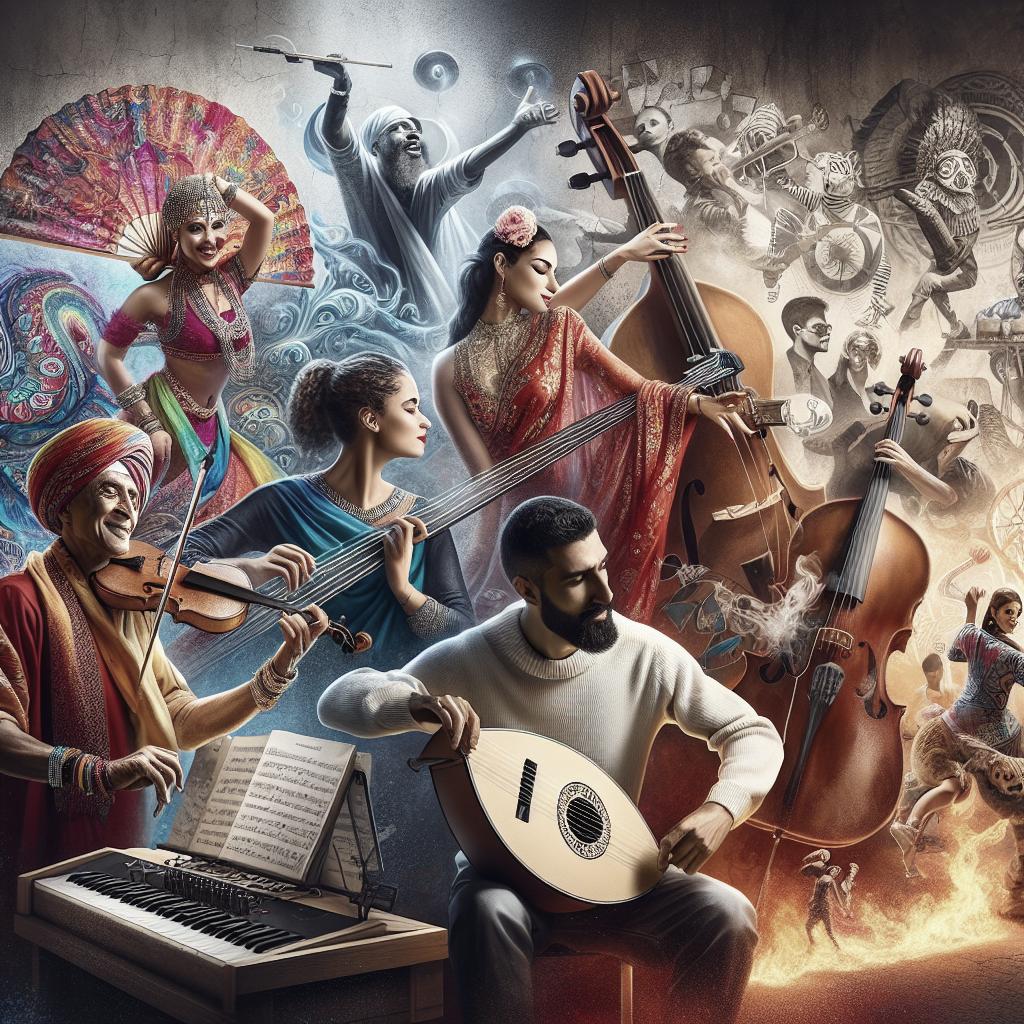“`html
The Influence of Music on Culture
Music is an integral part of human life and has the power to transform, connect, and reflect cultural dynamics. This article delves into the profound impact that music has on culture, exploring its ability to shape social norms and identities. We will investigate the symbiotic relationship between music and culture, understand how music fosters community and bonding, and examine the shared experiences that music creates across diverse groups. Through each section, we unravel the notion that music is not just an art form but also a universal language that transcends barriers and unites humanity in profound ways.
The Power of Music
From the rhythmic beats of a tribal drum to the complex arrangements of symphonic works, music possesses an undeniable power that resonates with audiences. It transcends language, allowing individuals from diverse backgrounds to connect and communicate on a deeper emotional level. Music’s power lies in its ability to evoke emotions, inspire creativity, and bring about social change.
Historically, music has played a crucial role in pivotal moments of change and revolution. Consider the protest songs of the 1960s, which became anthems for the Civil Rights Movement and anti-war efforts. Musicians like Bob Dylan and Nina Simone used their platforms to address social injustices, embedding music in the cultural consciousness as a powerful tool for expression and activism.
Moreover, the transformative power of music lies in its ability to heal and provide solace. Studies have demonstrated that music therapy can significantly improve mental health and well-being, proving that music does more than entertain; it nurtures the soul.
The Relation of Music to Culture
Music and culture are inextricably linked, with each influencing and reflecting the other. Music often acts as a mirror, capturing the spirit of a particular era or societal context. Over time, the evolution of music genres has often paralleled shifts in cultural values and technological advancements.
For instance, the rise of rock and roll in the 1950s challenged conservative social norms and became synonymous with a burgeoning youth culture. Similarly, hip-hop emerged from the streets of the Bronx in the 1970s, becoming a voice for marginalized communities and addressing issues such as racial inequity and socioeconomic struggles.
In a globalized world, music serves as a cultural export, spreading the heritage and traditions of one community to another. The popularity of genres like reggae, K-pop, and Latin music exemplifies how music can transcend cultural boundaries and foster cross-cultural understanding.
How Music Brings us all Together
Sharing Emotions Through Music
Music’s unique ability to convey emotions makes it a universal language understood by all. Whether it be the joy of a lively dance tune or the melancholy of a somber ballad, music taps into human emotions in a way that is both powerful and profound. Through lyrics and melody, artists share their personal experiences and feelings, allowing listeners to relate and connect on a personal level.
This sharing of emotions fosters empathy, bringing individuals together regardless of their backgrounds. Whether you’re at a live concert or alone with headphones, music evokes shared experiences that resonate deeply within us all. It is this capacity for emotional expression and connection that makes music an essential part of the human experience.
Music Is an Activity That Promotes Bonding Over an Experience
Gathering to listen to music has been a communal activity for centuries, from traditional ceremonies to modern-day festivals. These shared musical experiences break down barriers and promote social bonding by creating collective memories and encouraging mutual interaction.
Consider a music festival where thousands gather to enjoy their favorite bands. The collective thrill of watching a live performance creates a sense of unity, as attendees come together to celebrate their shared love of music. These events encourage individuals to connect, forming friendships and communities around a shared experience.
Furthermore, music serves as a bridge across generations and cultures, allowing people of different backgrounds to connect through a shared love of specific genres or artists. Whether participating in a cultural music event or simply singing along to a family favorite, music reinforces bonds that transcend differences.
Music Is a Highway of Shared Experiences
Music enriches our lives by providing us with shared experiences that become integral to cultural identity. It serves as a soundtrack to our lives, marking our personal milestones and collective histories. Music’s presence in films, advertising, and public spaces continues to shape our experiences, influencing cultural trends and societal norms.
Through the internet and streaming platforms, music is now more accessible than ever, allowing people from different corners of the globe to experience and influence each other’s musical tastes. The exchange of musical cultures fosters global unity by highlighting our shared humanity amidst diversity.
In an era where digital technology breaks down geographical boundaries, music remains a constant, unifying force that connects us all through shared experiences and emotions. As we continue to explore and celebrate music’s role in culture, it is clear that its influence is timeless and boundless.
Final Thoughts
| Section | Key Points |
|---|---|
| The Power of Music | Music evokes emotions and inspires change; it transforms lives through therapy and activism. |
| The Relation of Music to Culture | Music mirrors and shapes cultural values, acts as a cultural export promoting global understanding. |
| Sharing Emotions Through Music | Music expresses emotions, fostering empathy and personal connection. |
| Music Is an Activity That Promotes Bonding Over an Experience | Music gatherings build communities and strengthen social bonds across generations and cultures. |
| Music Is a Highway of Shared Experiences | Music provides shared cultural experiences, marking personal and collective histories. |
“`
